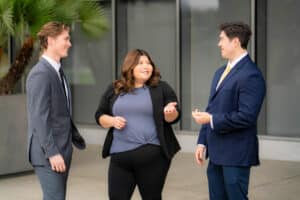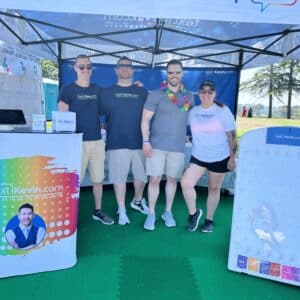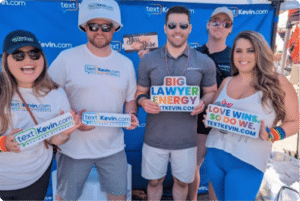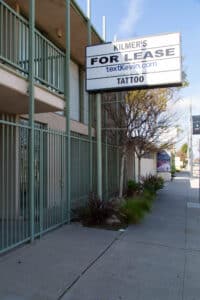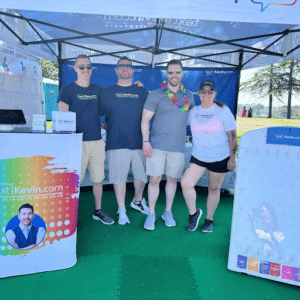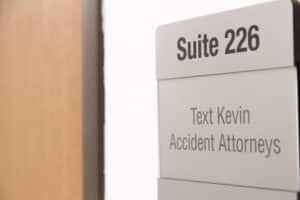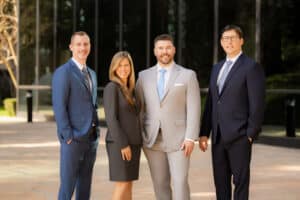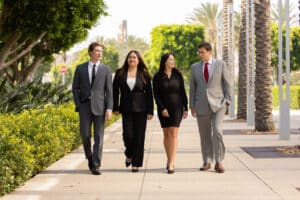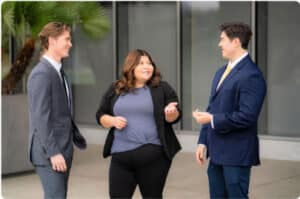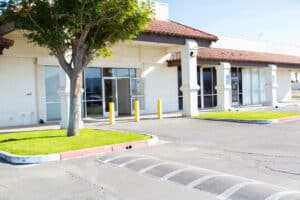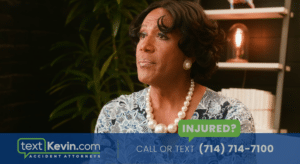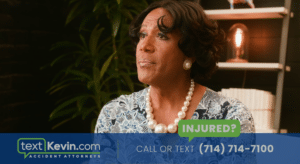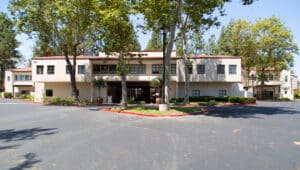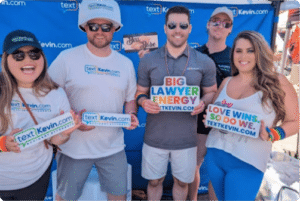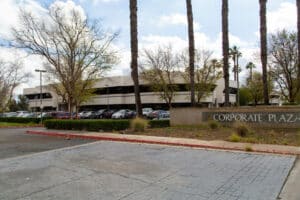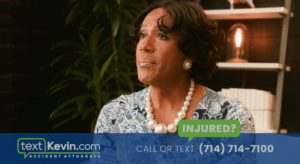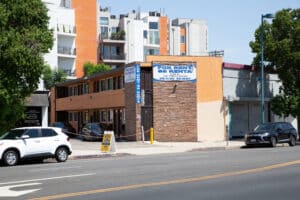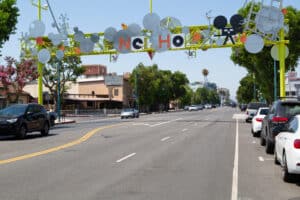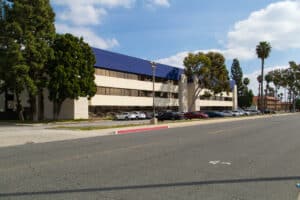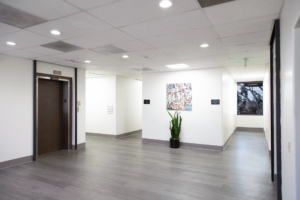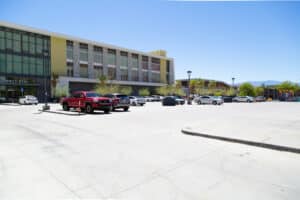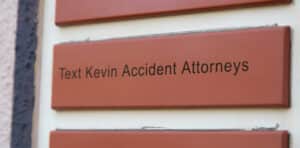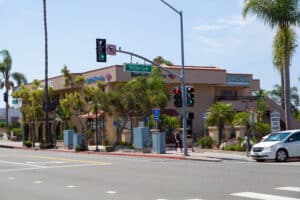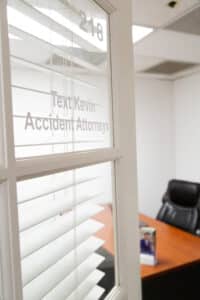CVC 14601.2(a) states that if you drive while your license is suspended or revoked for a DUI, you may face significant penalties for that behavior. A first-time conviction can lead to up to 6 months in county jail and a fine of up to $1,000, while a second offense within 5 years can lead to up to a year in jail and a fine of up to $2,000.
When someone makes a serious mistake on the road, you may be the one facing the consequences for their actions. They may have struck you, leaving you severely injured, or they may have struck a loved one and caused a fatal accident. In these cases, you may need to hold them responsible for the financial and emotional suffering you have experienced, but your claim may be complicated by their actions.
For example, if the driver has been accused of violating California Vehicle Code 14601.2(a) VC: driving while license suspended or revoked for DUI, you may face further complexities in your lawsuit. Fortunately, we at Text Kevin Accident Attorneys are ready to act as your California car accident lawyer and provide the tools and resources you need to navigate a car accident claim complicated by criminal activity. We can help you understand how their charges can impact your claim, and we are prepared to use evidence from these other cases to help you get compensation and closure.
Vehicle Code 14601.2(a) VC Defined
When another driver is careless with your safety, it can lead to not only a personal injury lawsuit but also a criminal case. If someone is injured or killed in a car accident, and the driver was driving on a license that was suspended or about for a DUI, your case may be more complex under this law. The full text of the statute is below:
VC 14601.2. (a) A person shall not drive a motor vehicle at any time when that person’s driving privilege is suspended or revoked for a conviction of a violation of Section 23152 or 23153 if the person so driving has knowledge of the suspension or revocation.
Note
If either driver is accused of driving with a suspended or revoked license, you may have criminal charges to deal with. That can complicate personal injury and wrongful death claims, but a lawyer can help you recover.
14601.2(a) VC Can Have a Crucial Impact on Your Personal Injury Claim
When someone causes a personal injury while committing a crime, they may face two separate branches of case types. Your claim for your damages is seen in civil court, where you can seek to prove they injured you through their negligence. However, they may also face traffic or criminal court charges for breaking the law, which comes with separate penalties.
When this happens, their charges must be handled before your civil lawsuit. However, this can work in your favor, as any evidence used in their trial can also be used in your lawsuit. Even if the charges are not successful, civil lawsuits have a lower burden of proof, as you only need to prove that they injured you through their negligence, so reach out to us if the situation has impacted you.
Your Statute of Limitations May Be Affected
Under California Civil Code section 335.1, you have limited time to sue when someone else causes a car accident. All claims must be filed within 2 years, with only a few exceptions, and if you do not act in time, the claim may be dismissed. However, you may have filed your claim, but the criminal case may be taking a significant amount of time.
Fortunately, while your claim may be delayed by the criminal trial, your statute of limitations is paused during this trial. If you have already filed your claim, you simply need to wait until the trial ends before yours can begin. We can provide the support you need to begin building your claim while you wait for the criminal trial to complete.
Comparative Negligence for Your Car Accident
Because of the many expenses and legal penalties the at-fault party may face, they may do everything in their power to avoid paying out of pocket for the significant injuries they may have inflicted. Recovery from injuries like burns, brain trauma, and spinal cord injuries can be expensive, and the at-fault party may try to reduce that amount, even if they may still be found at fault for your injuries. They may do so by using California’s comparative negligence laws or California Civil Code Section 1714.
Under this law, your compensation may be reduced by the amount of fault placed on you. For example, if the at-fault party claims you are 10% at fault and you do not fight back, you may only receive 90% of your compensation. When acting as your personal injury lawyer, we can help defend your case and show you were not being negligent.
Pro Tip
If your claim is impacted by criminal charges against the other driver, you may have grounds to speak with an attorney about your claim. If you are unsure we are the right lawyers for your case, you can always check out our testimonials page to see what past clients are saying about our services.
The Accused Has a Chance to Defend Their Case
When someone is accused of causing a car accident and driving on a suspended license, they are fighting a two-fold battle. They are facing a criminal trial that can impact their driving record for even longer, and they are pushing back against the accusations of fault in a civil lawsuit. Because of this, they may pursue a strategic defense that can help them avoid paying out of pocket for your recovery and get their charges reduced or dismissed.
Keep in mind that while they may successfully defend against the criminal offense they are charged with, that does not mean you do not have grounds for a lawsuit. These are separate types of cases, and they are governed by different sets of laws, which means you may have a chance to push back. Criminal cases also have a much higher standard of proof, meaning that evidence that was not successful may be enough to secure compensation for your accident injuries.
Lack of Knowledge of Suspension
In some cases, the at-fault party may claim that they did not know their license was suspended or revoked. They may claim that they were acting as they normally would and that they believe they were doing so in good faith. In these cases, they may be able to successfully defend against these charges, but this does not mean that they were not driving negligently.
Not Driving the Vehicle
In other cases, they may claim they were not driving the vehicle at all. For example, they may have been a passenger, or someone else may have borrowed their vehicle, and that person caused the accident. In these cases, they may have been falsely charged with driving while their license was suspended for a DUI.
This defense can potentially impact your personal injury claim due to liability laws. According to California Civil Code Section 1714, California is a fault state, meaning that the person responsible for causing your accident is also responsible for the financial recovery you face from your injuries. If the person accused of driving while their license was suspended was not actually driving, liability might fall elsewhere, but lawyers like Kevin Crockett at Text Kevin Accident Attorneys can investigate this and determine the person responsible for your injuries.
Tip
Penalties for Vehicle Code 14601.2(a)
Vehicle Code 14601.2(a) can result in harsh penalties as a misdemeanor. However, the specifics of the at-fault driver’s penalties will depend on whether this is their first offense. Previous convictions can lead to harsher penalties.
For example, a first-time conviction is punishable by 10 days to 6 months in a county jail and a fine of up to $1,000. That is already potentially a significant loss. The judge can also impose misdemeanor probation, meaning they can serve their sentence outside of jail.
The sentence becomes harsher for second convictions within 5 years of the first offense. In these cases, the defendant may be imprisoned in a county jail for 30 days to a year, though probation may still be an option. The defendant may also need to pay a fine of up to $2,000.
Related Crimes Can Impact Your Personal Injury Claim
While charges of driving on a suspended license for a DUI are already a serious offense, they can come with other charges, depending on the specific actions of the at-fault party. These charges can impact the outcome of your case, leading to further consequences for the at-fault driver and more potential complications for your case. Understanding these potentially related crimes can help you better navigate your claim.
DUI (VC 23152)
When another driver is accused of a DUI, they may have been driving under the influence of alcohol or drugs under VC 23152. That means that they were over the legal limit, which is 0.08% blood alcohol concentration (BAC). This is a misdemeanor, but repeat offenses can lead to felony charges.
Being involved in an accident with a drunk driver can lead to a criminal case that must be completed before your lawsuit is handled. However, the evidence and potential conviction can help you prove you were injured and that you are due compensation. It can even lead to punitive damages under California Civil Code Section 3294, which are not always awarded but can provide further financial coverage for you.
Driving on a Suspended License (VC 14601(a))
While CVC 14601.2(a) VC is specific to driving on a license suspended for a DUI, they may also face charges for simply driving on a suspended license at all under CVC 14601(a). A license suspension comes from repeated dangerous behaviors or evidence that the driver is negligent. If they knowingly drive on a suspended license, it can lead to more serious penalties legally for them, which must be seen in trial before your personal injury lawsuit.
Driving on a Suspended or Revoked License Causing Bodily Injury (VC 14601.4)
The driver may also face further charges for driving on a suspended or revoked license if they also cause bodily injury to another person during this driving under CVC 14601.4. If you were injured in the accident, they may face imprisonment in a county jail for up to 6 months and a maximum fine of $1,000 for a first-time offense. While this case must be completed before you can sue, the evidence for these charges can be useful for your lawsuit.
Can You Lose Your Insurance Coverage for Driving with a Suspended License?
When another driver causes a crash while driving with a suspended license, it can have an impact on your lawsuit. However, it can also impact their insurance coverage. Understanding this impact can help you understand how your claim may be impacted as well.
In some cases, the insurance company may choose to drop the at-fault driver’s insurance coverage if they engage in driving with a license suspended. Insurance companies expect safe driving from their clients, and driving with a suspended license is a sign of recklessness, especially if an accident happened during this time. Previous DUIs that led to the conviction can also impact their insurance coverage, which can affect how you receive compensation for the injuries they caused.
If the at-fault driver is convicted of driving with a license suspended or revoked for a DUI, it can impact their insurance coverage going forward. Even if their insurance company does not drop them for this behavior, their insurance rates may skyrocket, which can lead to lapses if they cannot pay. That can make it more difficult for them to recover their license and ability to drive following the accident and criminal conviction.
Reach Out for Legal Support When You Have Been Injured by Another Driver
When another driver is careless with your safety, you may already have grounds for a lawsuit because of their actions. However, criminal activity, such as Vehicle Code 14601.2(a) VC: driving while license suspended or revoked for DUI violations, can lead to changes in the way your claim is handled, including the timeline for your recovery. While knowing that your claim may take longer than expected can be frustrating, understanding these laws can help you better take action for your claim.
This action starts with connecting with the team at Text Kevin Accident Attorneys. We understand how other legal issues can change the outcome and specifics of how we pursue your compensation for a lawsuit. To learn more about our specific services and how they can impact your case, reach out for a free consultation when you call or complete our online contact form.



















